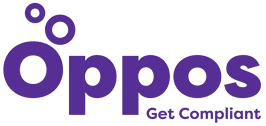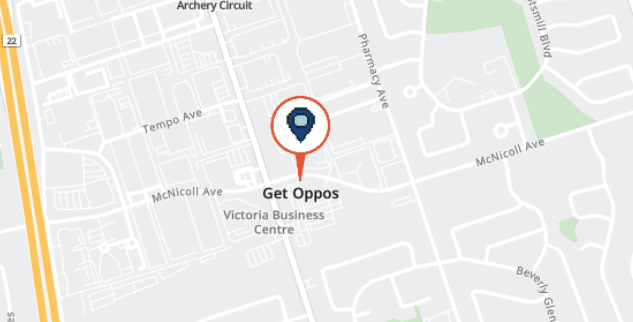The Personal Information Protection and Electronic Documents Act (PIPEDA) is a cornerstone of Canadian privacy law, governing how private-sector organizations handle personal information during commercial activities. Enacted in 2000, PIPEDA was designed to foster trust in electronic commerce, a burgeoning field at the time. Over the years, its scope has expanded to cover various sectors, including banking, broadcasting, and healthcare, ensuring comprehensive protection of personal data across the board.
PIPEDA aims to balance the privacy rights of individuals with the legitimate needs of organizations to collect, use, and disclose personal information for reasonable purposes. This balance is crucial in today’s digital economy, where data is a valuable asset. According to the Office of the Privacy Commissioner of Canada, PIPEDA applies to over 1.2 million businesses across the country, highlighting its extensive reach and importance.
This guide will provide an in-depth look at what is PIPEDA, including its key principles, compliance requirements, and the rights it grants to individuals. We will also explore the implications of non-compliance and offer practical advice for businesses to ensure they meet their obligations under the law. Whether you are a small business owner or part of a large corporation, understanding PIPEDA is essential for protecting personal information and maintaining consumer trust.
In this Guide

Purpose of PIPEDA
The primary purpose of PIPEDA is to protect the privacy of individuals by ensuring that businesses handle personal information responsibly. This involves setting out rules for the collection, use, and disclosure of personal information, thereby building trust and confidence in the digital economy. PIPEDA also grants individuals the right to access their personal information and request corrections if it is inaccurate.
Scope of PIPEDA
The Personal Information Protection and Electronic Documents Act (PIPEDA) serves as a fundamental framework for protecting personal information in Canada. Its primary purpose is to safeguard the privacy of individuals by ensuring that businesses handle personal information responsibly. This involves setting out clear rules for the collection, use, and disclosure of personal information, thereby fostering trust and confidence in the digital economy. PIPEDA also grants individuals the right to access their personal information and request corrections if it is inaccurate.
Key Objectives of PIPEDA
-
Protecting Personal Information:
PIPEDA aims to protect personal information from misuse and unauthorized access. This includes any factual or subjective information about an identifiable individual, such as age, name, ID numbers, income, ethnic origin, or blood type, as well as opinions, evaluations, comments, social status, or disciplinary actions.
-
Ensuring Responsible Data Handling:
The law requires organizations to handle personal information fairly and transparently. This means collecting, using, and disclosing personal information only for purposes that a reasonable person would consider appropriate.
-
Building Trust in the Digital Economy:
By setting out clear rules for data handling, PIPEDA helps build trust between consumers and businesses. This trust is essential for the growth of the digital economy, as it encourages individuals to confidently engage in online transactions and share their personal information.
-
Granting Individual Rights:
PIPEDA provides individuals with several rights regarding their personal information. These include the right to access their personal information, request corrections, and challenge the accuracy of the information held by organizations.
Examples of PIPEDA in Action
To better understand the purpose of PIPEDA, consider the following examples of how it applies in various scenarios:
-
Opening an Account:
When a bank opens a new account for a customer, it collects personal information such as the customer’s name, address, and financial details. Under PIPEDA, the bank must inform the customer why this information is being collected and obtain their consent before proceeding.
-
Verifying Creditworthiness:
A credit card company may need to verify an individual’s creditworthiness before issuing a card. The company must explain this purpose to the individual and obtain their consent to collect and use their credit information.
-
Providing Employee Benefits:
An employer may collect personal information from employees to provide benefits such as health insurance. The employer must clearly define the purpose of collecting this information and ensure it is used only for providing the specified benefits.
-
Processing Magazine Subscriptions:
A magazine publisher collects personal information from subscribers to process their subscriptions and deliver the magazine. The publisher must inform subscribers of this purpose and obtain their consent before collecting their information.
-
Sending Membership Information:
An association may collect personal information from its members to send out membership information and updates. The association must clearly state this purpose and obtain consent from members before collecting their information.
10 PIPEDA Principles Explained
Key Definitions
-
Personal Information: Under PIPEDA, personal information is broadly defined as any information about an identifiable individual. This includes names, addresses, email addresses, phone numbers, dates of birth, social insurance numbers, financial information, and medical information.
-
Commercial Activity: PIPEDA applies to any transaction, act, or conduct that is of a commercial character, including the selling, bartering, or leasing of donor, membership, or other fundraising lists.
Fair Information Principles
PIPEDA is based on ten fair information principles that form the foundation for the law’s approach to privacy protection:
1. Accountability: Organizations must designate an individual responsible for ensuring compliance with PIPEDA.
2. Identifying Purposes: Organizations must identify the purposes for which personal information is collected at or before the time of collection.
3. Consent: Individuals must be informed of the purposes for which their personal information is being collected, and consent must be obtained.
4. Limiting Collection: Organizations must limit the collection of personal information to what is necessary for the identified purposes.
5. Limiting Use, Disclosure, and Retention: Personal information must only be used or disclosed for the purposes for which it was collected, and retained only as long as necessary.
6. Accuracy: Personal information must be accurate, complete, and up-to-date.
7. Safeguards: Personal information must be protected by appropriate security measures.
8. Openness: Organizations must be open about their policies and practices regarding personal information management.
9. Individual Access: Individuals have the right to access their personal information and challenge its accuracy.
10. Challenging Compliance: Individuals must be able to challenge an organization’s compliance with PIPEDA.
PIPEDA Compliance Requirements
Organizations must adhere to several requirements to comply with the Personal Information Protection and Electronic Documents Act (PIPEDA). These requirements are designed to ensure that personal information is handled responsibly and transparently, thereby protecting the privacy of individuals and fostering trust in the digital economy. Below are the key compliance requirements under PIPEDA:
Obtaining Consent
Organizations must obtain meaningful consent from individuals before collecting, using, or disclosing their personal information. Consent must be informed, meaning individuals should understand the nature, purpose, and consequences of the data collection. This involves:
-
Informing Individuals: Clearly explaining why personal information is being collected, how it will be used, and to whom it will be disclosed.
-
Accessible Information: Providing information in a manner that is easy to understand, avoiding complex legal jargon.
-
Withdrawal of Consent: Allowing individuals to withdraw their consent at any time, subject to legal or contractual restrictions
Limiting Use, Collection, and Disclosure
Personal information must only be collected, used, and disclosed for the identified purposes. This principle ensures that organizations do not collect more information than necessary and use it only for legitimate purposes. Key aspects include:
-
Identifying Purposes: Clearly identifying and documenting the purposes for which personal information is collected at or before the time of collection.
-
Limiting Collection: Collecting only the information necessary for the identified purposes.
-
Limiting Use and Disclosure: Using and disclosing personal information only for the purposes for which it was collected, unless further consent is obtained
Ensuring Accuracy
Organizations must ensure that personal information is accurate, complete, and up-to-date. This is crucial for minimizing the risk of using incorrect information, which can lead to adverse outcomes for individuals. Steps to ensure accuracy include:
-
Regular Updates: Implementing policies to regularly update personal information.
-
Verification: Verifying the accuracy of personal information before using it for decision-making or disclosing it to third parties
Safeguarding Personal Information
Organizations must implement appropriate security measures to protect personal information from loss, theft, unauthorized access, disclosure, copying, use, or modification. The level of protection should correspond to the sensitivity of the information. Security measures can include:
-
Technical Safeguards: Using encryption, firewalls, and secure access controls.
-
Physical Safeguards: Implementing physical security measures such as locked filing cabinets and restricted access to offices.
-
Administrative Safeguards: Establishing policies and procedures for handling personal information and training employees on these practices
Providing Access
Individuals have the right to access their personal information and be informed about its existence, use, and disclosure. Organizations must provide access to personal information upon request and allow individuals to challenge its accuracy and completeness. Key aspects include:
-
Access Requests: Responding to access requests within a reasonable time frame, typically within 30 days.
-
Transparency: Informing individuals about where their information is held, how it is used, and to whom it has been disclosed.
-
Correction Requests: Allowing individuals to request corrections to their personal information if it is inaccurate or incomplete
Allowing Individuals to Challenge Compliance
Individuals have the right to challenge an organization’s compliance with PIPEDA. Organizations must have procedures in place to handle complaints and investigate potential non-compliance. This involves:
-
Complaint Handling: Establishing simple and accessible procedures for individuals to file complaints.
-
Investigation: Investigating all complaints thoroughly and taking appropriate corrective actions.
-
Communication: Informing complainants about the outcome of their complaints and any steps taken to address the issues
Additional Compliance Measures
In addition to the above requirements, organizations should also consider the following measures to ensure comprehensive PIPEDA compliance:
-
Data Mapping: Developing a central data map to understand what personal information is held, where it is stored, and how it is processed.
-
Privacy Impact Assessments: Conducting privacy impact assessments to identify and mitigate risks associated with personal information processing.
-
Breach Response: Establishing a breach response process to handle data breaches, including mandatory reporting to the Office of the Privacy Commissioner of Canada (OPC) and notifying affected individuals if there is a real risk of significant harm
Exceptions to PIPEDA
There are certain exceptions to PIPEDA’s requirements, allowing personal information to be collected, used, or disclosed without consent in specific circumstances, such as:
-
For journalistic, artistic, or literary purposes.
-
For national security, defense, or public safety.
-
As part of an employment application or relationship.
Enforcement and Penalties
The Office of the Privacy Commissioner of Canada (OPC) is responsible for enforcing PIPEDA. The OPC can investigate complaints, conduct audits, and take enforcement actions against organizations that violate PIPEDA. Penalties for non-compliance can include fines of up to $100,000 CAD per violation.
Data Breach Notification Rules
As of November 1, 2018, organizations subject to PIPEDA must report data breaches that pose a real risk of significant harm to individuals to the Privacy Commissioner of Canada. They must also notify affected individuals and any other organization that may mitigate harm. Organizations must keep records of all breaches for at least 24 months.
Comparison with Other Data Protection Laws
PIPEDA shares similarities with the European Union’s General Data Protection Regulation (GDPR) but is generally considered less strict. Both laws emphasize the importance of obtaining consent and protecting personal information. However, PIPEDA applies only to commercial activities, whereas GDPR has a broader scope.
Provincial Privacy Laws
In addition to PIPEDA, several Canadian provinces have their own privacy laws:
-
Alberta: Personal Information Protection Act (PIPA)
-
British Columbia: Personal Information Protection Act (PIPA)
-
Quebec: Privacy Legislation Modernization Act (Law 25)
These provincial laws are similar to PIPEDA but may have stricter requirements in certain areas.
Conclusion
PIPEDA provides a comprehensive framework for protecting personal information in Canada. By adhering to its principles and requirements, organizations can ensure they handle personal information responsibly, build trust with customers, and avoid penalties for non-compliance. For more detailed guidance, organizations can consult resources provided by the Office of the Privacy Commissioner of Canada and other compliance tools.
Navigating the complexities of PIPEDA compliance can be challenging, but you don’t have to do it alone. Oppos cybersecurity professionals offers a comprehensive Privacy Assessment Service designed to help your organization meet all PIPEDA requirements efficiently and effectively. Our expert team will guide you through every step of the compliance process, from data mapping and consent management to implementing robust security measures and handling access requests.






